Just how important was the Vauxhall Cavalier?
- Published
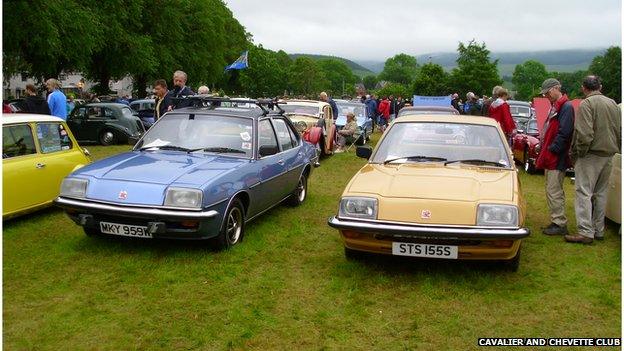
On Sunday, an attempt to line up as many Cavaliers and Chevettes as possible will be made
Forty years ago a car was unveiled that promised "the power you want, the economy you need (at) the price you'll like". Costing a little over £4,000, the car in question was the Vauxhall Cavalier.
Was the Vauxhall Cavalier one of the most important cars in British motoring history?
Kevin Bricknall believes it was. Along with its little sister the Vauxhall Chevette, which also first rolled off the production line in 1975.
Of course, as a paid up member of the Vauxhall Cavalier and Chevette Club, Mr Bricknell might be accused of bias.
But he says: "Both cars saved Vauxhall, they turned the company's fortunes around.
"They were the cars that when people looked around and saw them they said 'yes, I want one of those'."
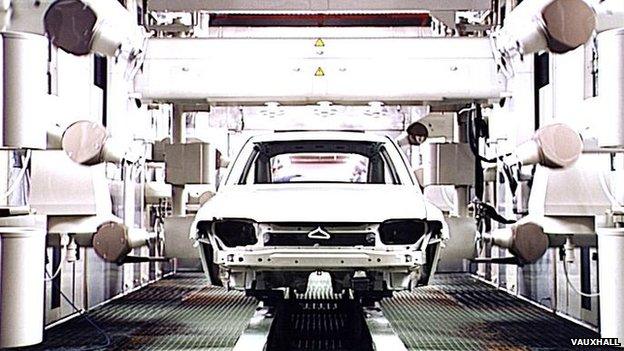
The Vauxhall Cavalier existed in three versions before it was replaced by the Vectra in 1995
Mr Bicknell was one of those who saw, wanted and then bought. And he now owns a small menagerie of Vauxhalls and Opels including the Vauxhall Mark II Cavalier Calibre that appeared in James May's Cars Of The People.
Later, the Vauxhall Cavalier and Chevette Club will be celebrating 40 years of the Cavalier Mark I and Vauxhall Chevette at the Vauxhall Bedford Opel Association annual rally at the Billing Aquadrome in Northamptonshire.
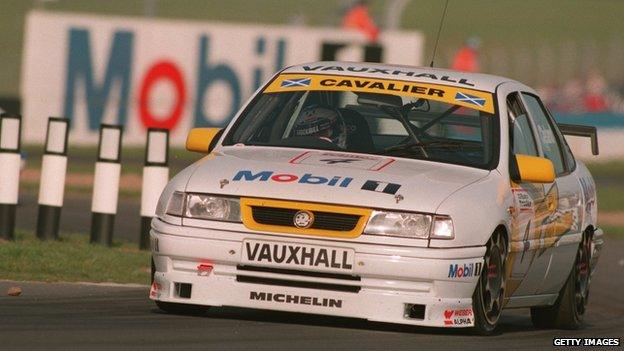
Cavaliers had a good motor racing record on the touring car scene
Some of the cars attending are fresh from a road trip from Durness in Scotland and there will be a parade of Cavaliers and Chevettes in the parade ring on Sunday.
The Cavalier was one of the UK's best selling family cars until production ceased in 1995.
"At one time you would see at least one version of the Cavalier on pretty much any street," says Mr Bicknell. "And sometimes you'd see a Mark II and a Mark III on the same street."
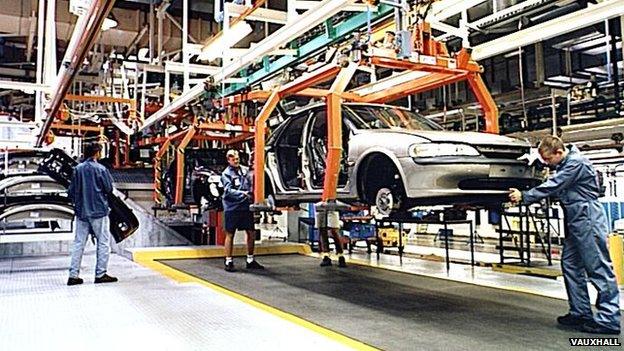
For many years, the Vauxhall Cavalier - and later the Vectra model - were made in Luton
Among the keys to its success, says Mr Bicknell, was that it looked good - thanks largely to the distinctive nose introduced by US designer Wayne Cherry - developed a strong racing record on the touring car scene and was easy to fix when it went wrong.
And it was good to drive, according to former Mark I owner Tim Gillett.
"I loved it," said Mr Gillett, from Southend. "I fell in love straight away. It was a Vauxhall Cavalier Mark I sports coupe, powerful and sporty.
"It was a lovely bronze colour, almost gold on a bright sunny day and it reminded me of James Bond. It was a classic British car."
There was another side to Mr Gillett's Cavalier ownership, however. Shortly after selling the car to his then girlfriend - now wife - Jackie, the steering column disintegrated and the car that once made him feel a little bit 007 was dispatched to the scrap yard.
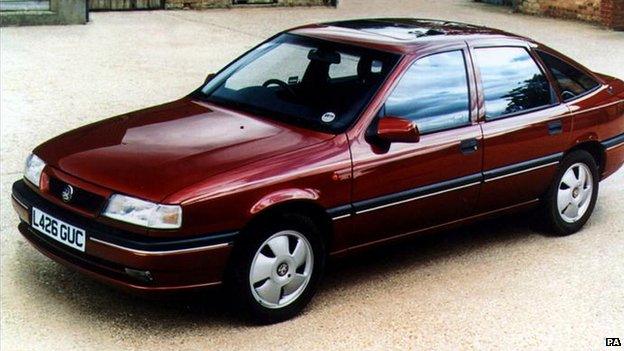
The Vauxhall Cavalier was eventually replaced with the Vectra model. But could there one day be a fourth version of the Cavalier? Some hope so
"Nowadays you'd be lucky to see a single Mark III," says Mr Bicknell. "And it is thought there are just a couple of hundred Mark Is still on the road."
As for the Chevette, its marketing slogan was that "it's whatever you want it to be".
"It was a good solid family car," says Mr Bicknell. "The Cavalier and Chevettes were among the best selling cars in the country at the time. Sometimes people joke about Vauxhall as a brand. But it is still going strong.
"Some people think the Ford Fiesta was the first car of its type. It wasn't, the Chevette predated the Fiesta by a year or two."
Will the Cavalier name - with its nod to British civil war history - ever return to British roads?
"Well," says Mr Bicknell, "they brought the Viva name back. And they replaced the Vectra with the Insignia. Perhaps one day the Insignia could be replaced with the Cavalier.
"It would be great if that did happen."